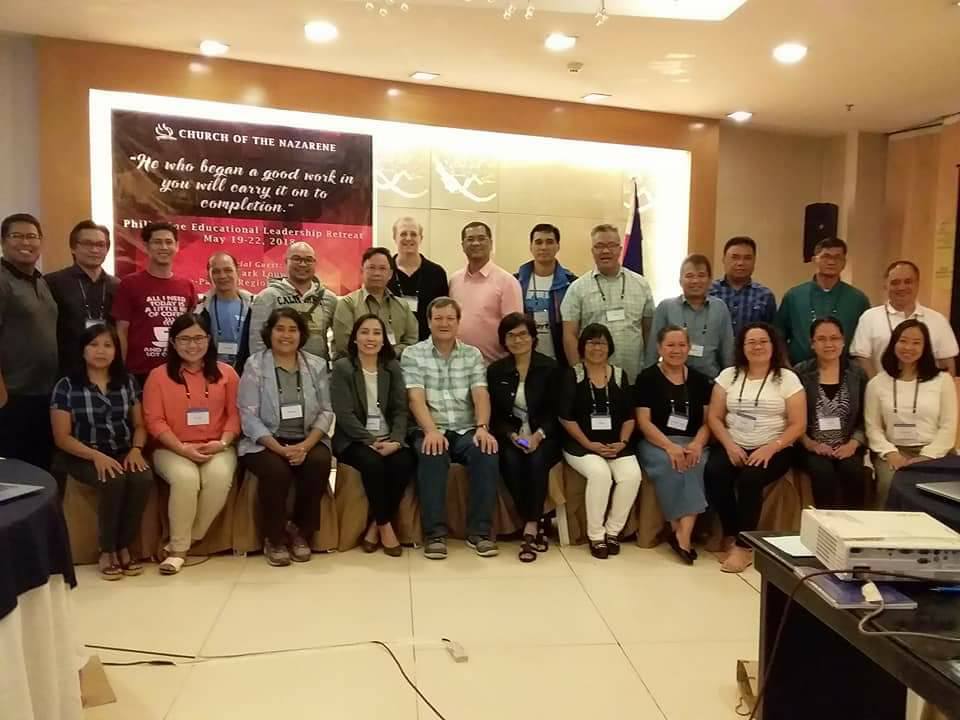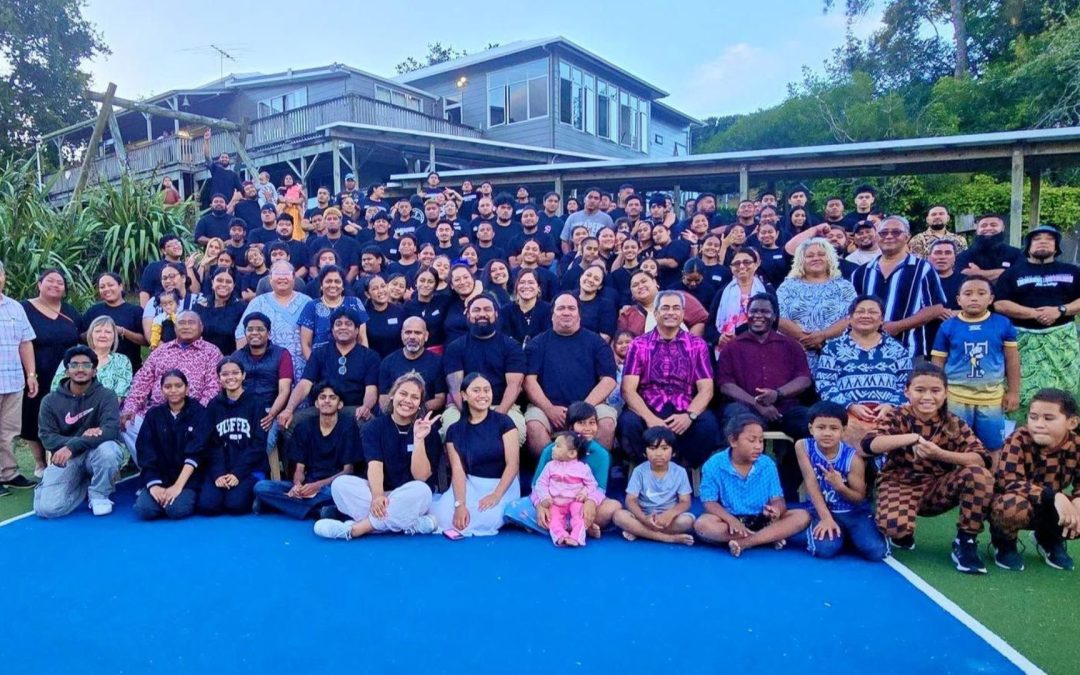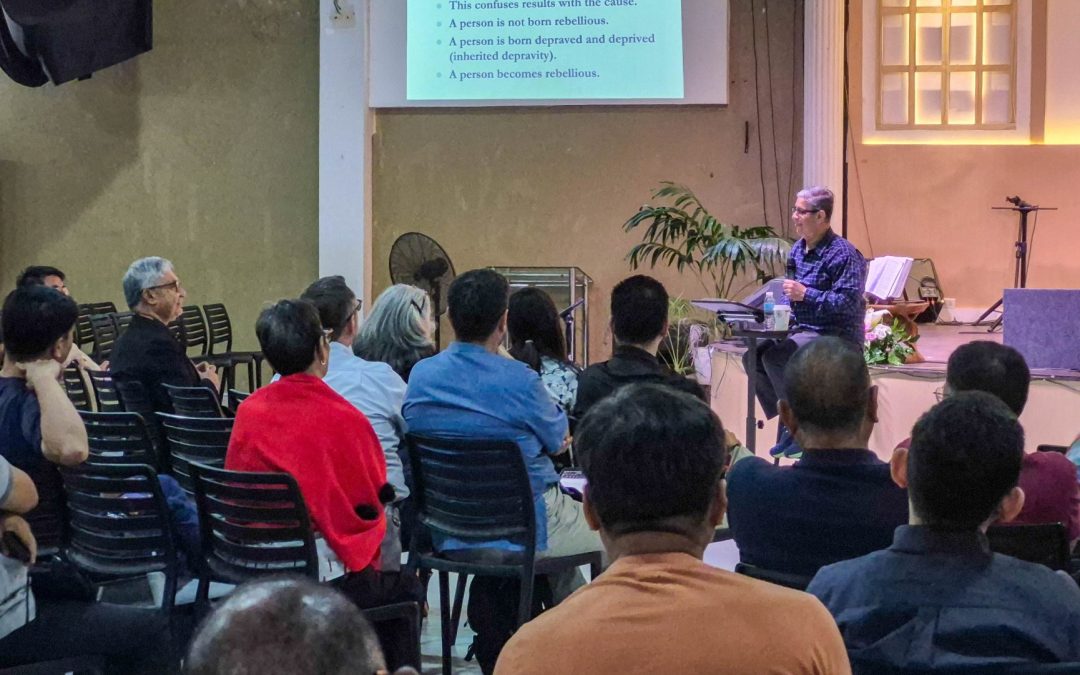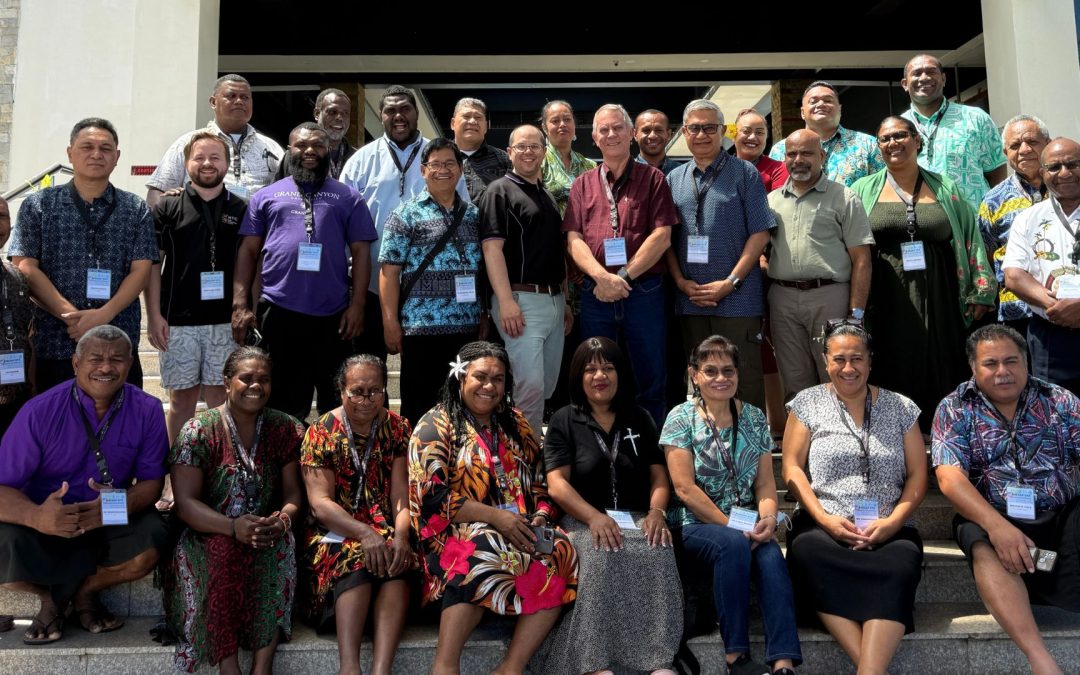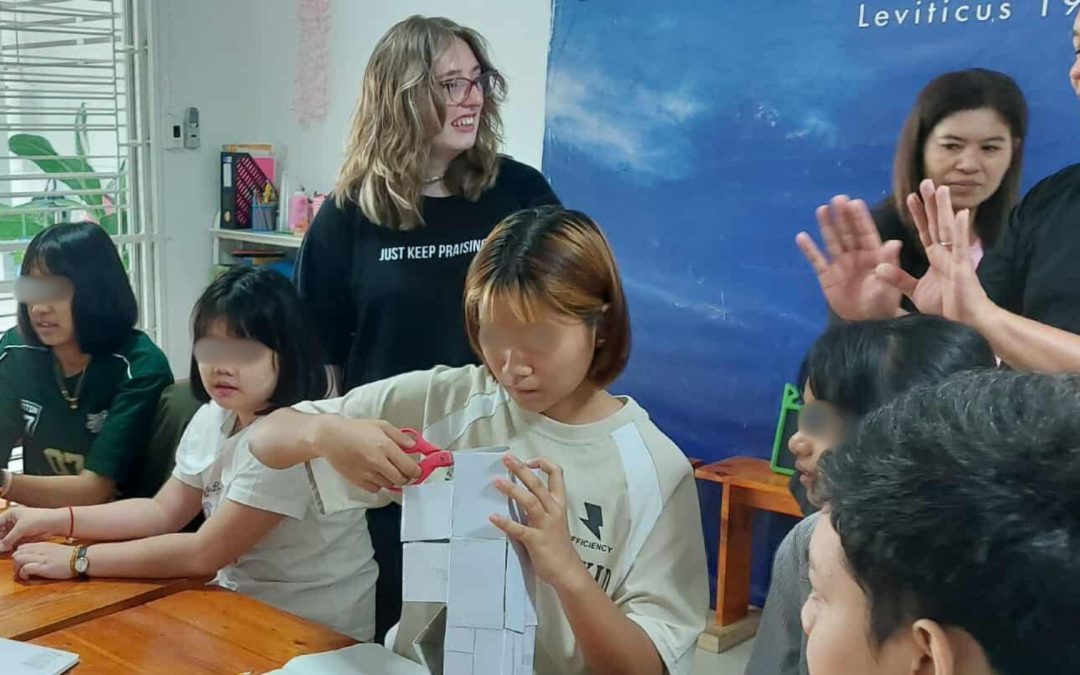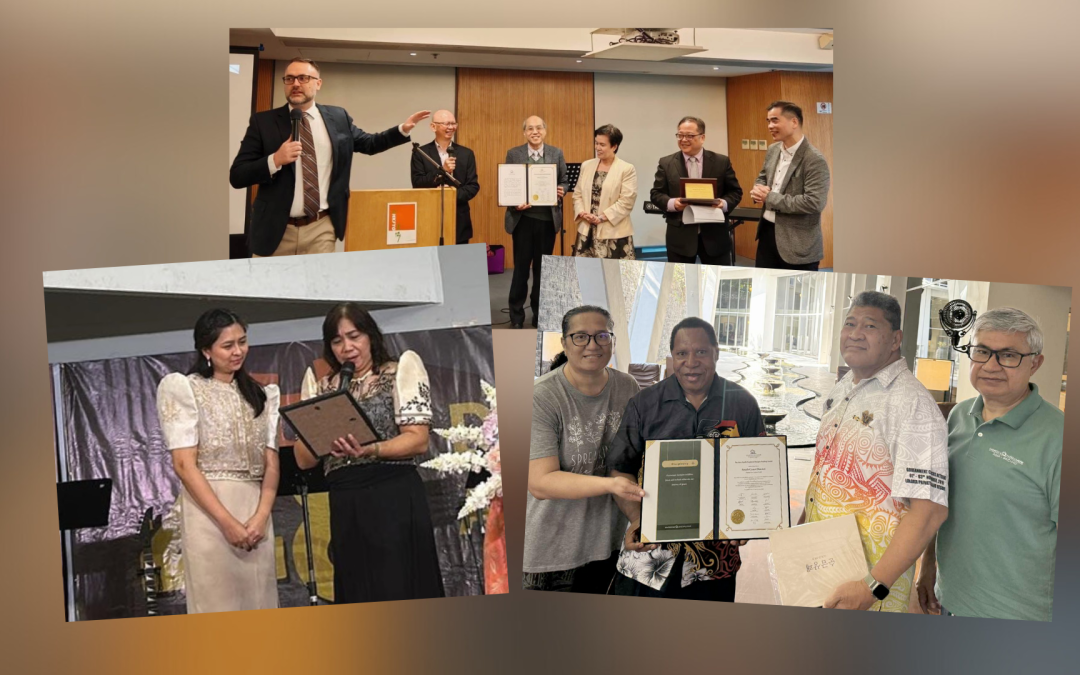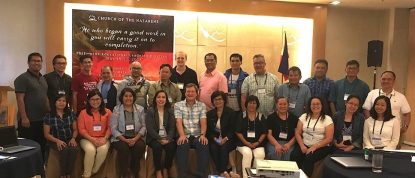 On May 19-22, over thirty educational leaders from the Philippines gathered in Baguio to discuss the past, present, and future of education in the Philippines. This was a historic meeting, the first of its kind for Nazarene educators in the Philippines. The presidents, academic deans, and the members of the Board of Trustees including district superintendents and lay people, represented Philippines Nazarene College (Baguio), Visayan Nazarene Bible College (Cebu), and Asia-Pacific Nazarene Theological Seminary (Manila).
On May 19-22, over thirty educational leaders from the Philippines gathered in Baguio to discuss the past, present, and future of education in the Philippines. This was a historic meeting, the first of its kind for Nazarene educators in the Philippines. The presidents, academic deans, and the members of the Board of Trustees including district superintendents and lay people, represented Philippines Nazarene College (Baguio), Visayan Nazarene Bible College (Cebu), and Asia-Pacific Nazarene Theological Seminary (Manila).
Dr. David Ackerman, Field Education Coordinator, led the group in a method called “Appreciative Inquiry.” Four major movements were explored: Discovery, Dream, Design, and Destiny. The representatives met in small groups throughout the retreat and answered a series of questions related to each of these four movements. Many ideas were generated during the discussions. The small groups wrote their insights on manila poster papers which were taped on the walls. The groups described the “super student” who could be a graduate of the educational process. They next explored the assets of the present Nazarene higher educational system. The group was surprised in how many ways God has blessed education in the Philippines. Students can go from Kindergarten all the way to Doctor of Philosophy degrees. The group also discussed what dreams God may plant in their minds for bold faith to move into the future. Finally, the group discussed a way forward. It was decided that more dialogue and collaboration between the schools are needed.
A special guest to the retreat was Regional Director, Dr. Mark Louw. On Sunday, Dr. Louw offered a moving message from 2 Timothy, tracing how Paul’s letter gives insights about the Being, Knowing, and Doing of theological education. Towards the end of the retreat, he provided the group a synthesis of his reflections based on the groups’ discussions.
Theological education is in transition around the world. The Philippines is no exception. The leaders of our three schools are eager to embrace God’s leading in order to be effective for a new generation of church leaders, both lay and ordained.

